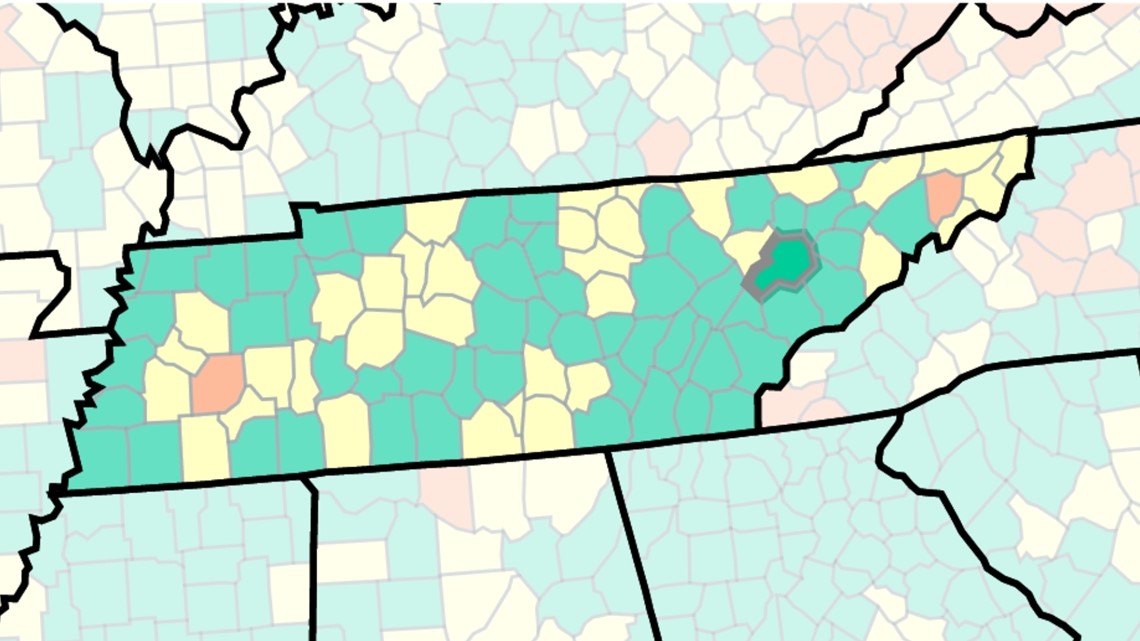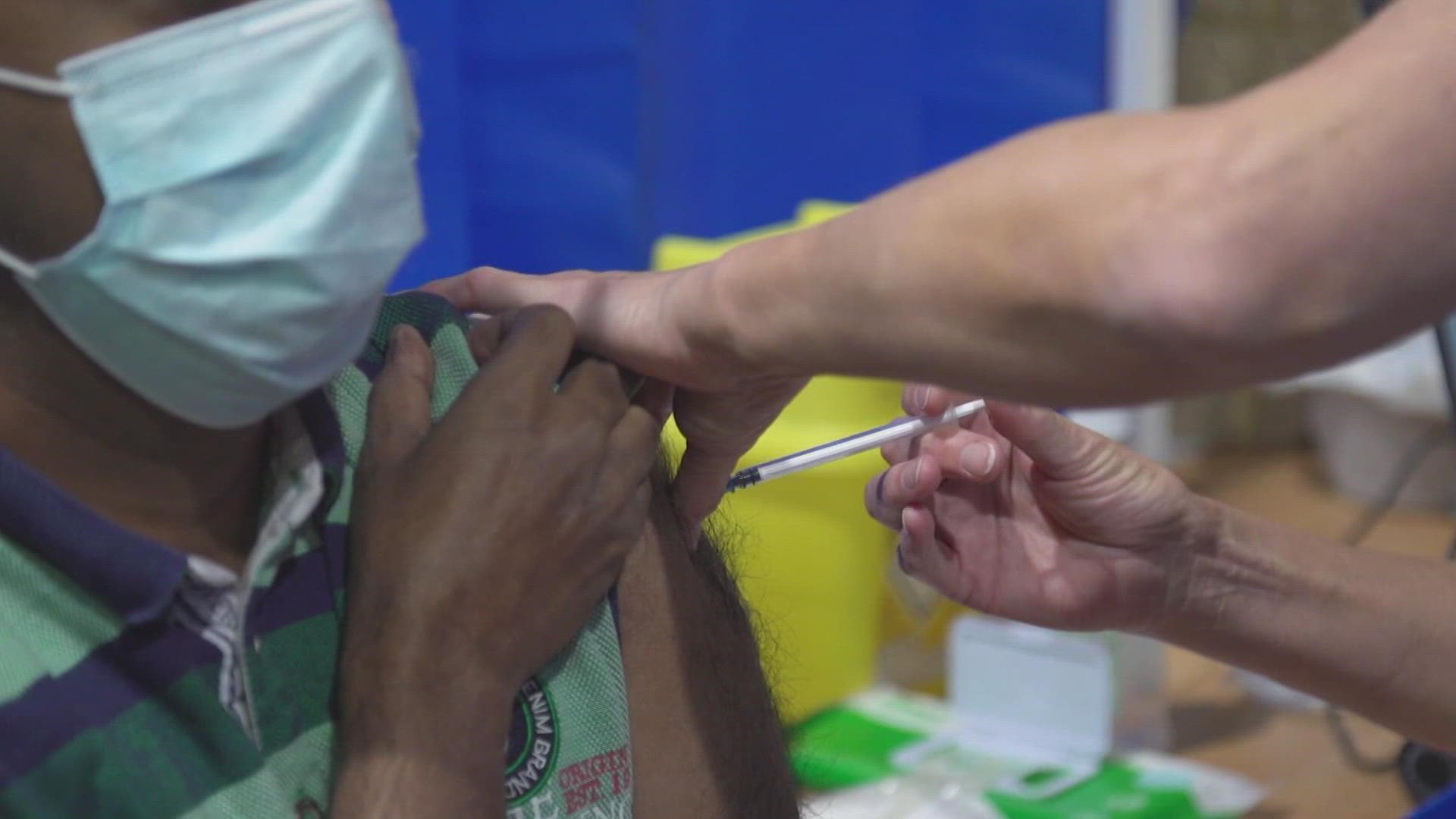KNOXVILLE, Tenn. — The Centers for Disease Control and Prevention said most of East Tennessee was back in the "low" COVID-19 risk category as of Friday. It is the lowest risk category of the CDC's three tiers.
People in counties with a "low" risk category should stay up to date with COVID-19 vaccines and get tested if they have symptoms. The CDC does not formally recommend wearing masks if counties are at this risk level, but said people can still choose to wear them at any time.
They also said people with symptoms of COVID-19, a positive test or exposure to another person with COVID-19 should wear a mask.
Knox County dropped to the "low" risk category on Sept. 16, and other counties in East Tennesse joined it on Friday. Washington County, in northeast Tennessee, was the only county still in the "high" category across the area as of Friday.
A few still remained in the "medium" risk category on Friday. A full list of East Tennessee counties and their risk categories is available below.


Medium-Risk East TN Counties (Extra precautions for those with high-risk conditions)
- Anderson County
- Claiborne County
- Cocke County
- Hawkins County
- Scott County
- Sullivan County
Low-Risk East TN Counties
- Campbell County
- Union County
- Grainger County
- Greene County
- Hancock County
- Hamblen County
- Morgan County
- Roane County
- Cumberland County
- Loudon County
- Knox County
- Jefferson County
- Rhea County
- Meigs County
- McMinn County
- Blount County
- Monroe County
- Sevier County
- Jefferson County
- Fentress County
A new vaccine made to address Omicron variants responsible for most cases of COVID-19 is now available across the U.S. Nationally, health officials said around 4.4 million people rolled up their sleeves for the updated COVID-19 booster shot.
However, health experts also said it is too early to predict whether demand would match up with the 171 million doses of the new boosters the U.S. ordered for the fall.

